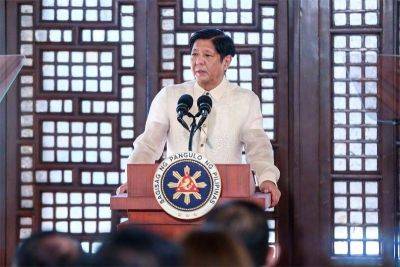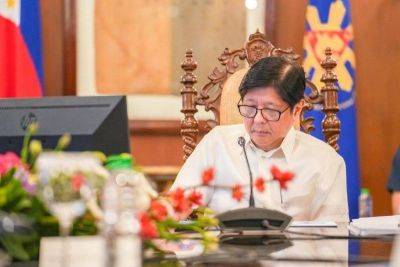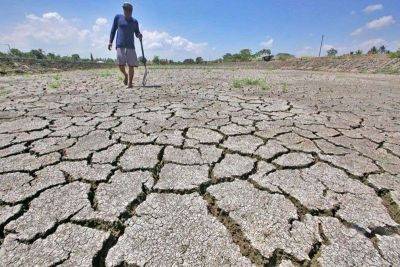Marcos Jr. lifts rice price cap, vows aid for farmers
MANILA, Philippines — President Marcos has lifted the price ceilings on rice as he vowed to sustain efforts to help improve the life of farmers and run after smugglers of agricultural goods.
“As of today (Oct. 4), we are lifting the price caps on rice, both for the regular milled and the well-milled rice,” Marcos said after distributing rice to beneficiaries of the government’s cash transfer program in Taguig yesterday.
“We removed the controls, but it does not mean it will end there because we need to fix the agricultural sector. We still need to help the poorest, the hungry, so they recover somehow,” he said.
To address the rising rice prices, the Marcos administration set price caps on the food staple through Executive Order No. 39, which took effect last Sept. 5.
Under the order, the price ceilings of regular milled and well-milled rice were P41 and P45 per kilo, respectively.
The government provided financial aid to small rice retailers affected by the price cap.
Nearly a month after the implementation of the price ceiling, the Department of Agriculture (DA) announced that the government is ready to lift the policy, citing the drop in prices of the staple in international and domestic markets as well as the expected increase in supply due to this year’s harvest.
The agency is expecting some 1.9 million metric tons of rice this month, which will be sufficient for 74 days.
Last month, the supply of rice was only good for 52 days.
Marcos, who is also DA chief, said that while market movements are uncontrollable, the government could provide assistance to sectors hit by an increase in the prices of commodities.
He said the Rice Tariffication Law allocates P10 billion every year for the Rice Competitiveness Enhancement Fund (RCEF).
The RCEF was established to protect the livelihood of farmers affected by the influx of imported rice.
Marcos said the collection from rice tariff will be used to acquire farm machinery to boost production.
He said the collection, which has reached over P12 billion this year, would also be used to distribute equipment to farmers and fishermen.
“The RCEF, from the expenditure of only P10 billion, will now be P22 billion in that regard







